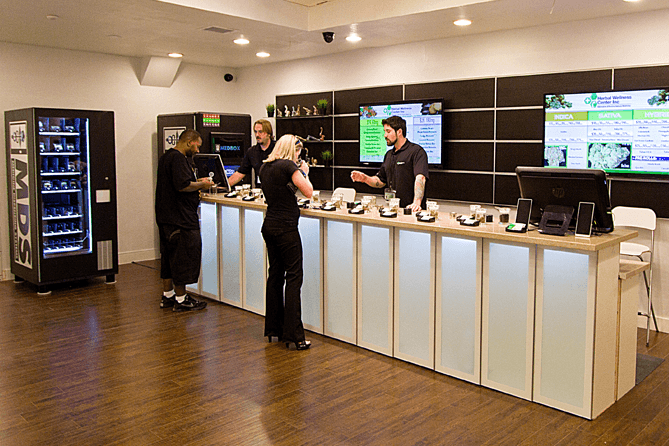How to raise profits using business analytics
by Anne Holland
Trevor Smith believes tracking, analyzing and comparing numbers is the key to success for dispensaries – and that neglecting them can lead to failure. “If a business is not using analytics, it won’t survive the long-term,” said Smith, vice president of Herbal Wellness Center of Phoenix.
A former private equity financial analyst and accounting software entrepreneur who creates spreadsheets as easily as most people breathe, Smith got the chance to prove his theories work in reality when he joined an existing Arizona dispensary as a partner in April 2014. The founder, a real estate and construction entrepreneur who won a license from Arizona in 2012, knew his dispensary could be doing better… but wasn’t sure how.
First, Smith sifted through the dispensary’s historic patient data and carefully observed operations. Then he sprang into action, revamping systems, processes and reports from stem to stern. In just 30 days, the dispensary reduced asset losses by 85% and increased EBITDA (earnings before interest, taxes, depreciation and amortization – aka the bottom line) by 10 times.
Here are four key numbers-based strategies he employed:
#1. Track Two Key Logs to Secure Assets
The dispensary now requires staff to update two critical activity logs on a daily basis:
- The Cash Log: Anytime cash changes custody – for example from a register to a safe – it must be noted in the cash log along with two on-site employee signatures.
- The Inventory Log: Product inventory is kept in numbered jars that have been pre-weighed when empty. That way it’s easy to count the store’s entire inventory in just 20 minutes, of which roughly five minutes may be used to account for discrepancies – such as weight changes due to moisture loss.
#2. Compile Critical Daily Reports to Measure Success
Smith used small business accounting software to produce a series of reports that give him almost a 360-degree view of all dispensary activities, even when he’s not on-site himself. He made the input as efficient as possible, so store managers spend no more than 75 minutes per day on administration and reporting, including cash and inventory logs. His favorite reports include:
- Average ticket price by budtender
- Discounts by budtender
- Total take per store per day
- Number of first-time vs. returning patients per day and week
#3. Give Your Staff Power
Once systems and processes are set up, Smith is firmly against staff micromanagement.
“You have to empower them,” he said. “Store managers can handle 99% of things. We hire good managers and budtenders who show a willingness to make a career out of this. We hire through referrals and look for trust, accountability and dependability. Typically our staff have some prior affiliation with the industry, with a clean criminal record.”
Smith also noted that building a successful company involves having the right team in place so that when you step away, everything still runs smoothly.
“If your business can’t run itself, it’s not a business. It’s work,” he said. “You want processes, systems and staff that don’t require a uniquely gifted person to be the one pulling the strings all the time.”
#4. Focus on Your Best Customers
One of the success metrics Smith is proudest of is that he was able to reduce the dispensary’s customers by 18% during his first 30 days on the job. That’s right, reduce.
The old saying “quality over quantity” applies to the world of dispensaries, Smith said.
“To be successful, you need to understand who your perfect patient is, how to find those people, which products they prefer, what the trigger points are to gaining their loyalty and how to get them to tell their friends about you,” he said.
If you are focused on increasing foot traffic, but not concerned with customer quality, you may not attract the best customers. And you won’t stand out in any way vis-à-vis the other dispensaries that are competing for their business.
Next steps…
Smith has grand plans for Herbal Wellness.
“I could see a franchise as a long-term strategy,” he said. The Arizona cannabusiness community is a tightknit group that has been watching Smith’s tactics with a great deal of interest. He and his business partner have already merged with a second dispensary in another area, and they’ve acquired a commercial cultivation license. They anticipate further acquisition in 2015 as they develop a larger brand.
Smith even pitched the investors affiliated with The ArcView Group at a summer pitch event in Chicago.





